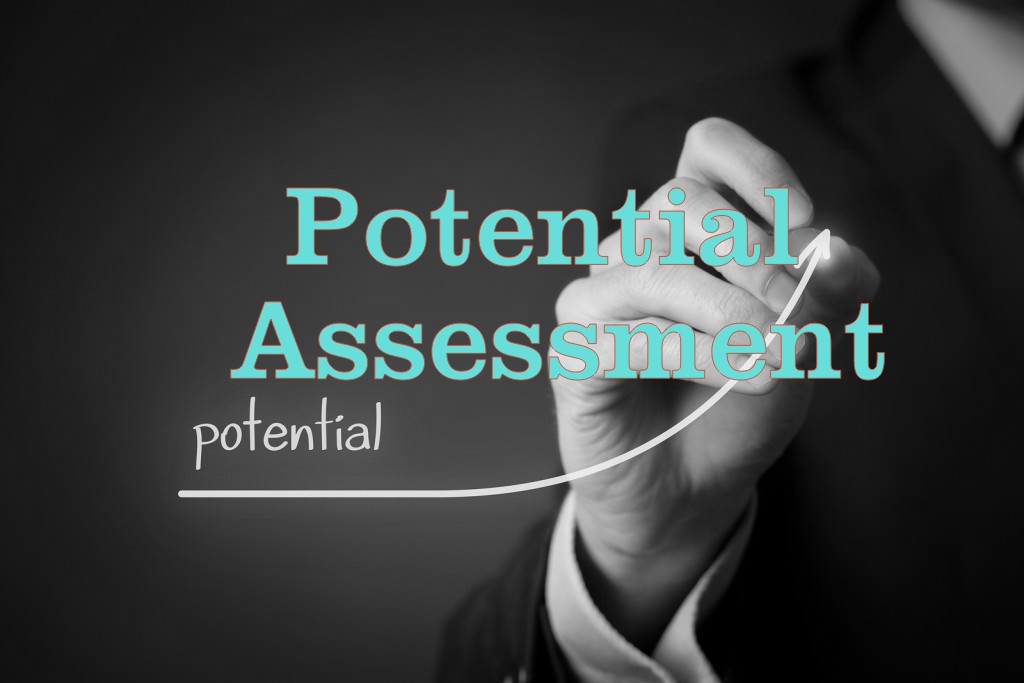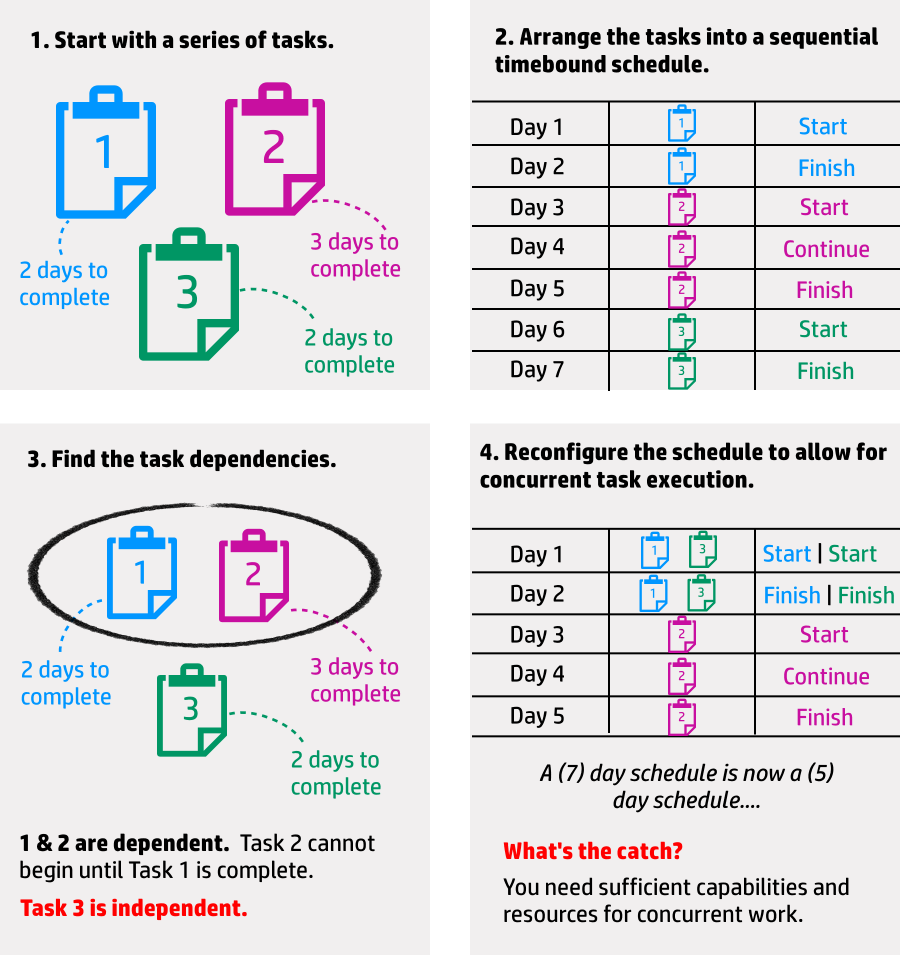High Potential: Assessing Its Impact On Psych-Spiritual Development After A Decade

Table of Contents
Defining "high potential" in this context goes beyond simply high IQ scores. We consider a multifaceted definition encompassing intellectual capabilities, emotional intelligence, and spiritual inclinations. High-potential individuals often demonstrate advanced reasoning, creativity, and a deep capacity for empathy. However, this potential also presents challenges: intense pressure to succeed, social isolation, and existential questioning are common experiences. This article aims to understand these complexities.
Academic and Intellectual Development in High-Potential Individuals
Accelerated Learning and Potential Burnout
High-potential individuals frequently exhibit accelerated learning, leading to early graduation, advanced placement, and participation in specialized programs. However, this accelerated path can also lead to burnout. The intense academic pressure, coupled with a potential lack of intellectual stimulation, can negatively impact their well-being.
- Statistics: Studies show a higher-than-average rate of anxiety and depression among gifted students, highlighting the need for comprehensive support.
- Challenges: Boredom in classrooms designed for average learners, lack of engaging challenges, and social isolation due to perceived differences are common obstacles.
- Strategies: Differentiated instruction, individualized learning plans, and access to advanced coursework can mitigate these risks. Encouraging extracurricular activities and fostering a growth mindset are also vital.
The Role of Gifted Education Programs
Specialized gifted education programs offer a tailored learning environment designed to meet the unique needs of high-potential students. However, their effectiveness varies significantly.
- Successful Models: Programs emphasizing project-based learning, independent study, and mentorship often yield better results.
- Limitations: Some programs may lack adequate resources or focus solely on academic achievement, neglecting social and emotional development. Equity of access remains a major concern.
- Inclusive Access: Creating inclusive programs that cater to the diverse needs of high-potential students from all backgrounds is crucial for fostering a truly equitable educational system.
Emotional and Social-Emotional Growth in High-Potential Individuals
Emotional Intelligence and Self-Awareness
While high potential often correlates with high IQ, emotional intelligence is equally crucial for overall well-being and success. Developing self-awareness, empathy, and emotional regulation is vital for navigating the complexities of life.
- Correlation: Research suggests a positive correlation between high IQ and emotional intelligence, but they are not interchangeable; fostering emotional intelligence requires explicit teaching.
- Fostering EI: Mindfulness practices, social-emotional learning programs, and opportunities for self-reflection can significantly enhance emotional intelligence.
- Impact: Strong emotional regulation skills contribute to improved academic performance, stronger relationships, and better mental health.
Social Adjustment and Peer Relationships
High-potential individuals may face challenges in forming meaningful peer relationships due to perceived differences in intellectual ability or interests. This can lead to social isolation and feelings of loneliness.
- Prevalence: Studies indicate a higher prevalence of social isolation and loneliness among gifted students compared to their peers.
- Promoting Integration: Creating inclusive classroom environments, fostering collaborative learning, and providing opportunities for social interaction are critical.
- Sense of Belonging: A strong sense of community and belonging is paramount for the social and emotional development of high-potential individuals.
Spiritual and Existential Development in High-Potential Individuals
Meaning-Making and Purpose
High-potential individuals often grapple with profound existential questions about meaning, purpose, and their place in the world. Finding a sense of purpose is crucial for their long-term well-being.
- Spiritual Development: Research highlights the importance of spiritual exploration and meaning-making in the lives of gifted individuals.
- Mentorship: Mentors and role models who can guide them through these existential questions play a vital role in their development.
- Fostering Purpose: Encouraging reflection, exploration of values, and engagement in activities aligned with their passions are key strategies.
Creativity and Contribution
High potential frequently manifests as exceptional creativity and innovation. Nurturing these gifts and enabling high-potential individuals to contribute meaningfully to society is essential.
- Significant Contributions: History is replete with examples of high-potential individuals who have made transformative contributions to society in diverse fields.
- Nurturing Creativity: Providing opportunities for creative expression, encouraging risk-taking, and fostering a culture of innovation are crucial.
- Social Responsibility: Instilling a sense of social responsibility and encouraging the application of their talents for the betterment of society is equally important.
Conclusion: Understanding the Long-Term Impact of High Potential
This exploration of high potential over a decade reveals the complexities of supporting these individuals. Their academic achievements are noteworthy, yet the accompanying challenges – burnout, social isolation, and existential questioning – require careful attention. Fostering emotional intelligence, promoting social integration, and nurturing their spiritual growth are crucial for maximizing their potential and ensuring their overall well-being. Addressing these multifaceted needs will not only benefit the individual but also society as a whole.
We must prioritize addressing the unique challenges faced by high-potential individuals to unlock their full potential and contribute to a more enriching and innovative world. Learn more about nurturing the potential within high-potential individuals and contribute to ongoing research on this important topic. By understanding the long-term impact of high potential, we can create a more supportive and inclusive environment for these exceptional individuals to thrive.

Featured Posts
-
 Examination Of Pam Bondis Alleged Access To The Epstein Client List
May 09, 2025
Examination Of Pam Bondis Alleged Access To The Epstein Client List
May 09, 2025 -
 High Potential Season 1s Underrated Character A Prime Target For Season 2
May 09, 2025
High Potential Season 1s Underrated Character A Prime Target For Season 2
May 09, 2025 -
 Improving Wheelchair Access On The Elizabeth Line A Guide For Passengers
May 09, 2025
Improving Wheelchair Access On The Elizabeth Line A Guide For Passengers
May 09, 2025 -
 The Lasting Impact Of High Potential An 11 Year Retrospective On Psych Spiritual Success
May 09, 2025
The Lasting Impact Of High Potential An 11 Year Retrospective On Psych Spiritual Success
May 09, 2025 -
 Speedy Construction 14 Edmonton Area School Projects On The Fast Track
May 09, 2025
Speedy Construction 14 Edmonton Area School Projects On The Fast Track
May 09, 2025
Latest Posts
-
 Emmerdale Star Shows Solidarity With Wynne Evans Amidst Strictly Scandal
May 09, 2025
Emmerdale Star Shows Solidarity With Wynne Evans Amidst Strictly Scandal
May 09, 2025 -
 Nhs Data Breach Investigation Into Access Of Nottingham Attack Victim Records By 90 Staff
May 09, 2025
Nhs Data Breach Investigation Into Access Of Nottingham Attack Victim Records By 90 Staff
May 09, 2025 -
 Nhs Trust Boss Cooperates With Nottingham Attack Investigation
May 09, 2025
Nhs Trust Boss Cooperates With Nottingham Attack Investigation
May 09, 2025 -
 Nottingham Hospital Data Breach Over 90 Nhs Staff Accessed Victim Records
May 09, 2025
Nottingham Hospital Data Breach Over 90 Nhs Staff Accessed Victim Records
May 09, 2025 -
 Boss Of Troubled Nhs Trust To Cooperate With Nottingham Attack Inquiry
May 09, 2025
Boss Of Troubled Nhs Trust To Cooperate With Nottingham Attack Inquiry
May 09, 2025
